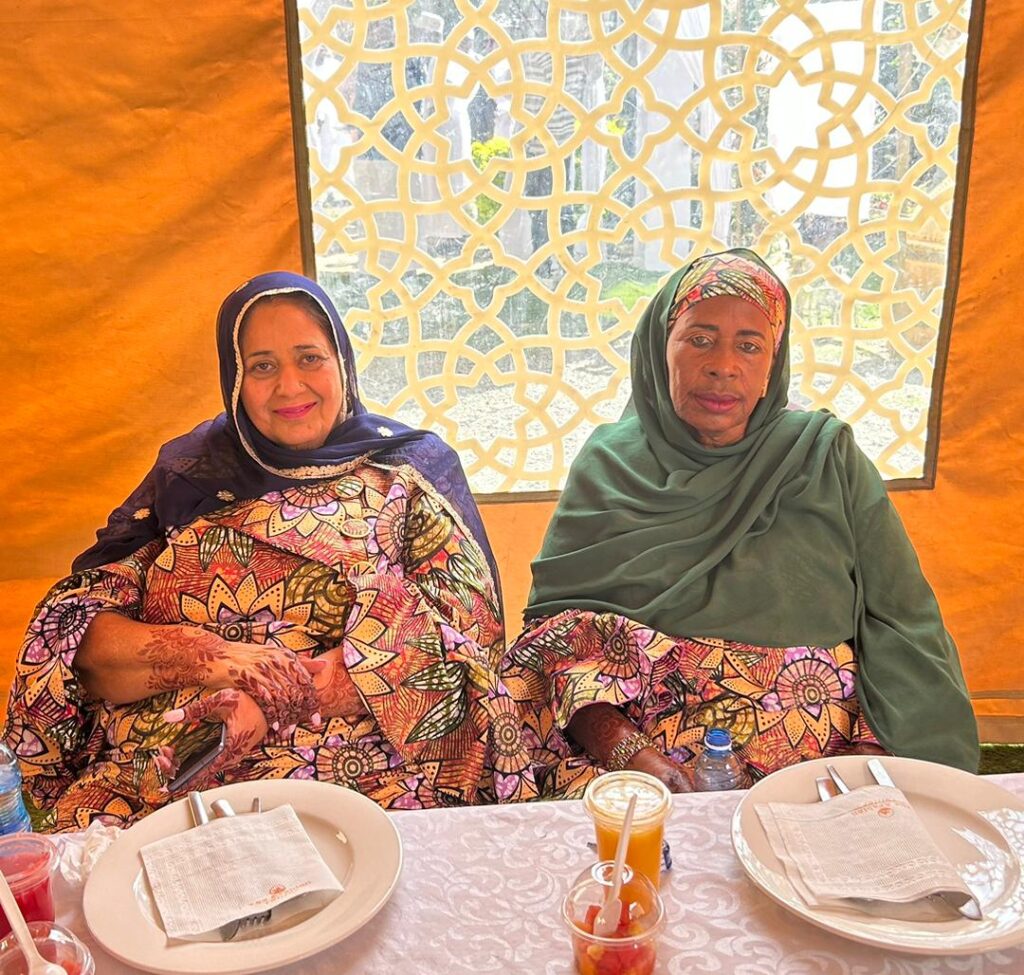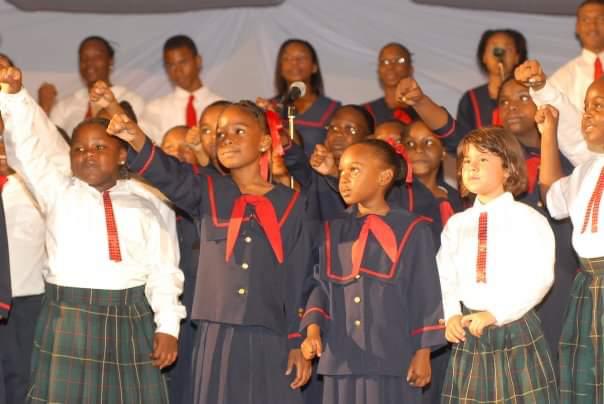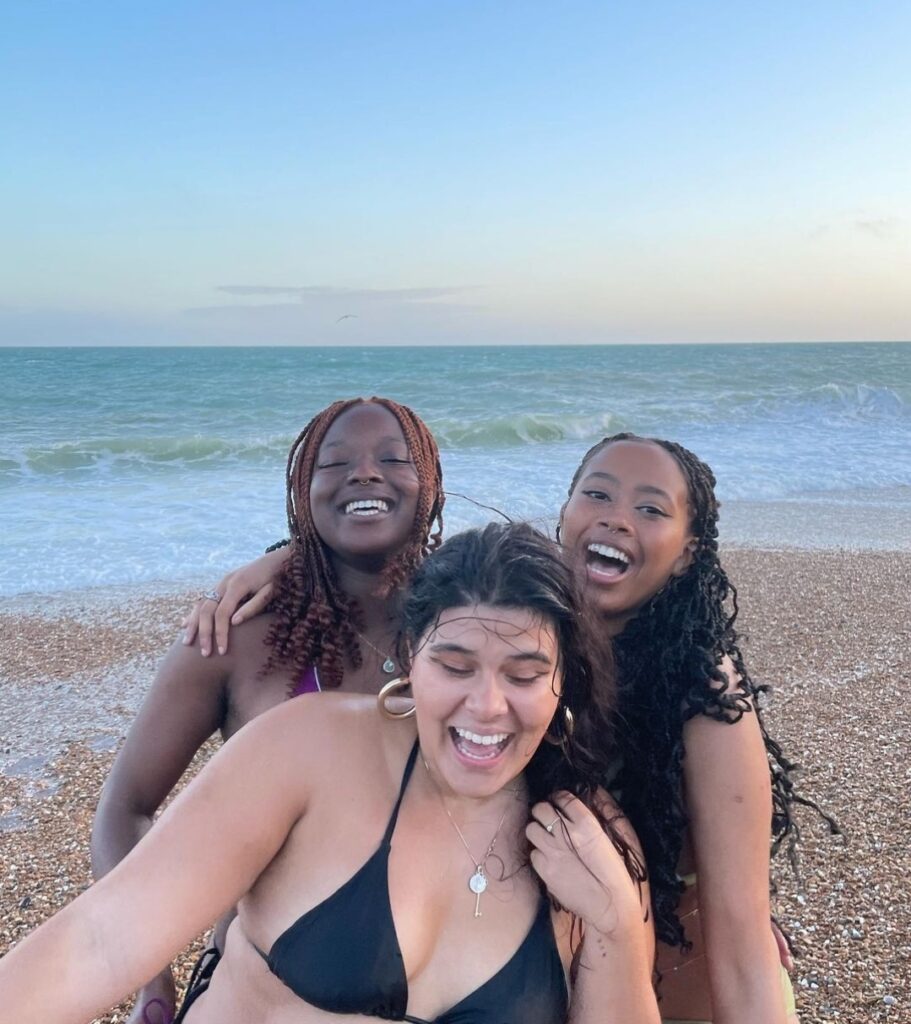By Sarah Angel Majeed
Strange Hair? Different eye colour? Funny accent? We all know the feeling of standing out for something we can’t control. Some West Africans can feel like strangers every day of their life in their own land. Chop speaks to Khuhu Singh and Valentina Hernandez about their experience.
Remember your last holiday? The struggle of not knowing the language, trying to fit in and adapt to a new culture, struggling to hail a taxi, and feeling like inflated prices are ripping you off. We never think that locals have the same experiences as tourists do. However, non-stereotypical West Africans have often described these very situations.
This feeling of otherness in one’s own country has spawned the term ‘tourist culture’. The term is self-referential for Africans not of African descent to describe their upbringing and place in society. It is the idea of not belonging to one singular culture but being part of multiple cultures.
Khuhu Singh, a 22-year-old actor born in Nigeria to Indian parents, discusses being mistaken for a tourist while walking through the famous Mile 12 food market in Lagos, where she lived for 20 years. “I was often mistaken for a tourist,” she says. “For example, when I would go out with my friends to eat street food, I was always charged higher rates than they were. My friends were charged 917 Nigerian Naira (equivalent to one pound sterling). Meanwhile, I was charged 2,00 Nigerian Naira (equivalent to two pounds sterling).”

Khuhu says, “Whilst this discrepancy may seem small -just a pound in this case quickly adds up. My allowance was spent far faster than my friends.”
Khuhu’s experience highlights the economic challenges faced by non-black Africans, such as being charged higher rates for street food, frequent scam attempts and career struggles, which result in being overlooked for promotions and not being hired in the first place.
Singh and her family felt the effects of this financial ‘tourist tax’. “When my parents went to the market, food would always be more expensive because we weren’t viewed as locals,” she says. “They would discuss the rising price of groceries with their friends, and their friends would not understand, saying that grocery prices hadn’t risen much for them.”

Valentina Hernandez, a 25-year-old Paralegal born and raised in Cote D’Ivoire to Peruvian parents, shares her experiences of being mistaken as a non-native in West Africa. She recounts instances of being labelled as the “white friend” or “light friend” in school and facing curiosity about her hair texture, which was a different shade of brown and wavy compared to the more typical African afro-textured hair.
“I was the only one that had a different hair type,” says Valentina. “Everyone would touch my hair without my consent because they were fascinated by its different texture.”

It is only now that she is an adult and can reflect on these experiences that, at the time, she perceived them as compliments, and she can see they were actually discriminatory.
Dr Marie Rodet, a professor of West African Migration at SOAS University London, suggests this form of othering is a response to combat the impact of colonialism. Subconsciously, native populations seek to preserve their own, although this does not necessarily mean maintaining a solely black demographic.
“Diversity, despite popular belief in the UK, is a large part of West Africa; every tribe is different, and languages vary from village to village. In Nigeria alone, there are more than 250 ethnic groups. Cote d’Ivoire has a 24% non-Ivorian population,” says Rodet.
Khuhu also felt the effects of this favouritism through her acting career struggles. “I was less likely to get hired or promoted in the workspace because I was not seen as part of the culture,” she says. Losing out on these career steps, – “was disheartening and made me feel like I didn’t belong in my own country,” she explains. It was because of these career struggles Khuhu left Nigeria in 2021 and moved to London.
Despite their feelings of otherness, Valentina and Khuhu still take pride in Africa’s rich cultural heritage. They both feel that being African has made them more open-minded and less judgmental because they have been raised around so many languages and tribes.
There is also a strong connection with family and a large sense of community that, even though I felt isolated from it at times, is very much lacking in UK culture. “Back in West Africa, we believe in living with your families for much longer than in the UK,” says Khuhu. “Also, if you ever need anything, you can always ask your neighbour for help because they aren’t your neighbour, they are your aunt.”
The most notable aspect the two women felt was lacking in the UK was the global perspective.
“Where I live now is hugely lacking in diversity,” says Valentina. “I find they do not have the global perspective I have. They think they know Africa because of TV and films but have never visited an African country.”
Rodet agrees, – “Unless people have visited Africa, their understanding is based on media which portrays Africa as a third world country either in need of saving or to be fearful of,” she says. “The Western media often perpetuates stereotypes of Africa as a monolithic, impoverished continent, ignoring the diverse nations within it.”
Khuhu, now studying in London, underscored the challenge of navigating identity in foreign environments. She acknowledges that she feels caught between cultures, not wholly embraced by either Indian or African communities. “Around both Indian people, I get made fun of because of the Nigerian pronunciations in my accent. However, when I’m with people from West Africa, they make fun of the Indian in my accent. It makes me feel like I don’t belong anywhere.”
Valentina echoes similar sentiments, explaining how she felt detached and isolated during her initial months in London due to her unique cultural upbringing. She felt disconnected even among second and third-generation Africans in the UK because they couldn’t understand how she could be a minority.
“I found my experiences were akin to my black friends,” she says. “However, they could not understand how I had similar life experiences to them. There is a lack of understanding that in West African countries, there are other minorities.”

Valentina recognises she needs to educate others so they can understand her culture, childhood, and life experiences. “I found people who were receptive to my experiences and wanting to hear and learn,” she says. “My mixed-race friends related to the feeling of not belonging to either community, but instead of viewing that as a negative, we see it as us having more of a global perspective.”
Since finding these friends, she no longer feels the same discontent with the ‘tourist culture’ as she used to. She feels she has become an ambassador for diversity within Africa. “Now when people speak about Africa, my friends like to educate them and say things like ‘my friend is from Africa, and she’s Peruvian,” says Valentina.
Despite growing up in different countries and speaking different languages, Khuhu and Valentina have many shared experiences of ‘tourist culture’ in West Africa, both positive and negative. “No other continent even approaches this level of human diversity, yet they lump us together,” says Valentina. “Every country has its own unique language. None of them are the same. No African is the same. We are not a monolith.”

